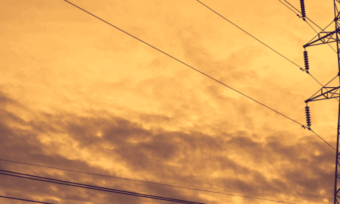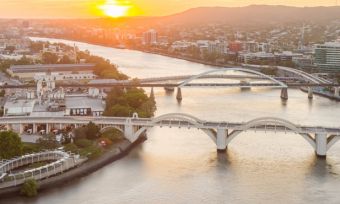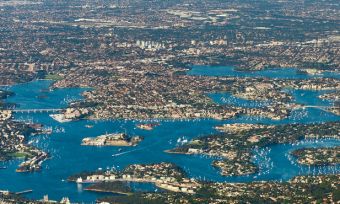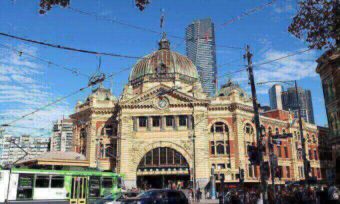Compare the cheapest gas prices in Melbourne, Victoria
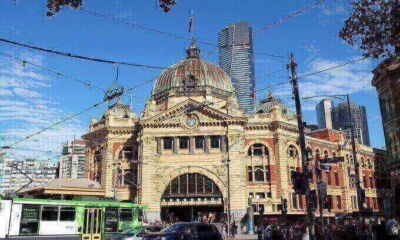
KEY POINTS
- Tango Energy, Sumo and CovaU Energy are currently offering Victoria’s cheapest natural gas deals based on our calculations and database
- There are two types of contract types – market-regulated standard contracts and retailer-designed market offers.
- Gas is generally cheaper than electricity for homes with medium to high gas usage.
Note: The prices listed below are based on a certain set of assumptions and apply to one particular area of Melbourne, so treat the information below as a general guide only.
Which providers offer the cheapest gas prices in Melbourne?
Our price calculations suggest that Tango Energy, Sumo and CovaU Energy currently provide the cheapest natural gas deals in Victoria, according to this specific comparison.
However, if you have visited this page before, you will notice that the cheapest providers have changed. Gas prices can change fairly often, so it’s important to keep an eye out for any increase in costs.
It’s also important to highlight that, in some cases, the cheapest gas deals will only be available when you also purchase electricity from the same retailer.
To calculate the expected cost of natural gas for you, we’ve used a typical Victorian home in Melbourne as an example.
The Australian Gas Network is the distributor network supplying gas to over 1.7 million households in Melbourne.
We will also assume this household has gas usage requirements of 40,500MJ per year, which is our estimated general usage in Victoria. All households will vary in gas usage, and rates charged will differ across locations.
Our price calculations are based on set assumptions and should only be used as a general indicator of which retailer may offer the cheapest natural gas.
The calculations below factor in usage and supply rates, as well as any conditional discounts available on the retailer’s cheapest market offer.
Cheap gas deals Victoria
Here are some of the cheapest gas deals on our database for VIC. These estimated annual costs are based on the AGN – VIC network in Melbourne and yearly gas usage of 40,500 MJ/year, but prices will vary depending on your own circumstances. The products are listed in order of lowest estimated price/year (including conditional discounts), then by the highest value rank (out of 10), then by highest brand satisfaction rating. These are products from referral partners†. Our database may not cover all deals in your area, and please check retailer websites for up to date information.
-
Ongoing energy plan with no renewal required Glossary
-
No lock in contract with variable rates Glossary
-
Ongoing energy plan with no renewal required Glossary
-
No lock in contract with variable rates Glossary
-
12 month energy plan with no exit fees Glossary
-
No lock in contract with variable rates Glossary
-
Ongoing energy plan with no renewal required Glossary
-
No lock in contract with variable rates Glossary
-
Ongoing energy plan with no renewal required Glossary
-
No lock in contract with variable rates Glossary
-
0 month contract with no exit fees Glossary
-
Ongoing energy plan with no renewal required Glossary
-
No lock in contract with variable rates Glossary
-
Ongoing energy plan with no renewal required Glossary
-
No lock in contract with variable rates Glossary
Advertiser Disclosure
Canstar Blue may earn a fee from its Online Partners for referrals from its website tables, and from sponsorship or promotion of certain products. Fees payable by product providers for referrals and sponsorship or promotion may vary between providers, website position, and revenue model. Sponsorship/promotion fees may be higher than referral fees. If a product is sponsored or promoted, it is an ad and it is clearly marked as such. An ad might appear in different places on our website, such as in comparison tables and articles. Ads may be displayed in a fixed position in a table, regardless of the product’s rating, price or other attributes. The location of an ad doesn’t indicate any ranking or rating by Canstar Blue. Payment of fees for ads does not influence Value Rank or Customer Satisfaction Ratings. See How We Get Paid to find out more.
General Disclosure – Energy
The data in the table is updated within 24 hours of Canstar Blue becoming aware of a change. You can find a description of the initial sort order below the table. You can use the sort buttons at the top of each column to re-order the display. Learn more about our Gas Value Rank Methodology.
Please note that the Satisfaction Rating displayed in the table is a rating relating to customers’ overall satisfaction with the brand. It should not be confused with an individual product rating. Learn more about Brand Satisfaction ratings and for more information on how the Brand Satisfaction ratings are calculated, read the Canstar Blue Most Satisfied Customers Methodology.
The results do not include all energy retailers or products in the market and may not compare all features relevant to you. Canstar Blue does not supply electricity or gas services. If you decide to apply for a particular energy product, you will deal directly with the retailer, not with Canstar Blue. Fees, charges, product information and contract terms should be confirmed directly with the relevant retailer.
Some plans may require you to meet certain conditions before a discount may become available to you. Check the energy provider’s plan information for details of all possible discounts that may apply and any conditions that need to be met for you to be eligible for these discounts.
Check your current plan’s exit fees and other termination provisions before changing providers.
Some plans may have a minimum term that is longer than one year. In that case the total cost over the term will be much higher than the estimated Price, which is for one year only. Consider the provider’s detailed product and pricing information before making a decision to take out a new plan or switch electricity providers.
Pricing Information
The price shown is inclusive of GST and is the estimated lowest possible price a representative customer would be charged in a year for each plan, assuming all conditions of discounts offered, if any, have been met. Gas usage assumptions have been derived from the average usages advertised by a selection of retailers in the distribution region as shown at the top of the table.
The general usage assumptions for products displayed in the table have been derived from:
- the average usages advertised by a selection of retailers in the distribution region as shown at the top of the table. The figures provided are intended to serve as general estimates and should be used for information only. If the amount of gas you actually use differs greatly from this estimate, your bill could be significantly larger or smaller than the estimated price/year listed for each plan; or
- if you have provided usage data from your gas bill, the estimated annual amount payable for this plan is based on your individual circumstances.
The estimated yearly Price is based on single rate tariffs, which is when a flat usage rate is charged for ‘blocks’ of gas consumed and could be a limited amount per day, month, quarter, which may include a second block with a different usage rate applied, or, season.
Some plans may have a minimum term longer than one year – in that case the total cost over the term will be much higher than the estimated yearly Price (which is only for one year).
Some plans may apply additional charges to the price shown. Always check the energy provider’s plan information for details of all charges that may apply.
What does the ‘phone’ mean?
By clicking on the number next to the phone icon, you will leave the Canstar Blue website and be connected with the call centre of the Online Partner’s brand that you have selected. You will be subject to that referral partner’s brand privacy policy and terms of use. You agree that Canstar Blue Referral Terms apply to this referral.
A breakdown of your gas bill
A typical gas bill will include supply charges, usage charges, discounts and any additional fees.
Keep in mind that it is not uncommon for gas distributors to charge different rates and/or fees across winter (peak) and non-winter (off-peak) months.
Usage charge
This is the component of the bill that reflects the amount of gas you used.
Some networks charge a single rate for all gas usage. However, it’s more common that customers receive what is called a ‘block rate tariff’.
- Single rate tariffs: Customers are charged a fixed rate for their gas usage, regardless of the time of day.
- Block rate tariffs: This is a type of tariff whereby the rate customers are charged will depend on how much gas they have used. As an example, a rate of 2.8c/MJ may apply to the first 50MJ of gas used in one day and the next 50MJ per day may then be charged at a rate of 2.5c/MJ. Any gas after that will then cost 2.1c/MJ.
Supply charge
This is an ongoing daily charge of typically between 70 and 90 cents per day, depending on your gas network.
Customers with a mains gas connection incur this fee regardless of the amount of gas they use, even if they don’t use gas at all.
Discounts
Most retailers offer customers a discount on the usage charge component of their gas bill. However, these discounts will almost always be subject to certain conditions.
Some of the most common discount conditions include paying your bills on time, paying bills via direct debit and purchasing both electricity and gas through the same retailer.
Gas discounts in Victoria range from around 5% to 33% and will sometimes only apply for a benefit period of one or two years.
Other fees and charges
You may notice some seemingly arbitrary charges added on top of your bill.
The explanation for these could be a credit card surcharge, connection fee, late payment fee or even a paper mailing fee.
The bill should make clear what the charge is related to, but if not, don’t be afraid to question your gas company on it.
Types of gas contracts in Victoria
There are two types of gas contracts – standard contracts and market contracts.
Standard contracts are government-regulated deals, whereby the industry regulator oversees rates, fees, terms and conditions to ensure minimum consumer protections.
Standard contracts are generally poor value as the rates aren’t particularly competitive, with no discounts. Conversely, standard offers are flexible and reliable with no contract period or exit fees.
Most Victorians are on what is called a ‘market contract’. Under a market contract, the retailer has broad discretion to set its own prices and terms.
These contracts are almost always better value than standard contracts as they often include generous conditional discounts.
Customers looking at market offers must, however, be vigilant of exorbitant rates, exit fees and short benefit periods.
Is gas cheaper than electricity?
Whether gas or electricity is cheaper to power your home depends on how much gas you intend to use.
Australian Gas Networks estimates that an average home, using an average total of 46 Gigajoules (Gj) for cooking, heating and hot water, in Victoria spends about $1,490 each year on natural gas.
That might sound like a lot, but AGN estimates that it is $45 less than what is spent on electricity a year – not to mention the carbon emissions saving.
Households with medium to high gas usage will usually find that gas works out notably cheaper than electricity. Customers with a mains gas connection using very little gas may, however, find themselves worse off for it.
That’s because, while gas usage rates are much lower than electricity usage rates, a household with both electricity and gas is paying two sets of daily supply charges.
Which gas supplier is rated highest in Victoria?
Just because a retailer is cheap doesn’t mean it’s necessarily good. There are plenty of other factors to consider when picking the right gas supplier for you, such as customer support, bill clarity and even its attitude to environmental sustainability.
Red Energy is the 2024 winner of the ‘Most Satisfied Customers’ award in Victoria, scoring five stars for overall satisfaction, value for money, customer service, bill and cost clarity, and ease of sign-up, along with three stars for online tools and advice.
Every year, Canstar Blue reviews Victorian natural gas suppliers to help customers find the highest-rated providers. Click the link below to see who else came close to snagging top place.





